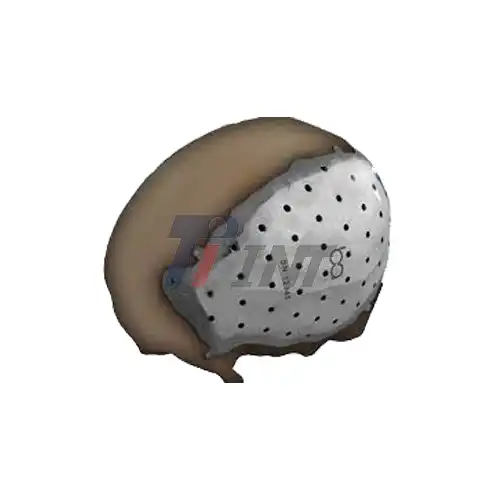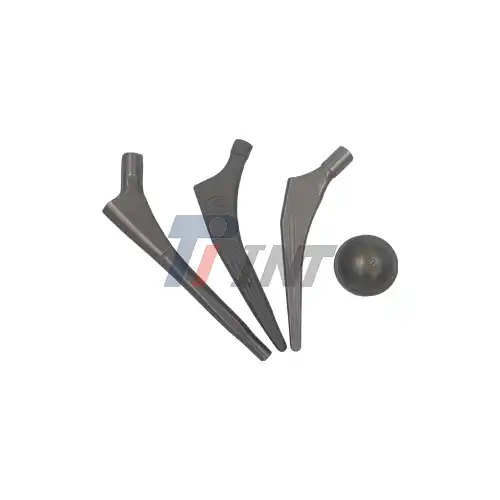The Advantages of Titanium Plates in Neurosurgery
Biocompatibility and Safety
One of the essential reasons titanium plates have gotten to be the gold standard in brain surgery is their uncommon biocompatibility. This characteristic guarantees that the embed is coordinating consistently with the patient's body, minimizing the chance of unfavorable responses or dismissal. The human body's characteristic protections ordinarily do not recognize titanium as a remote substance, which altogether diminishes the probability of irritation or unfavorably susceptible reactions.
Moreover, titanium plates used in brain surgery undergo rigorous testing and certification processes. Reputable manufacturers ensure their products meet international standards such as ISO9001:2015 for quality management systems and ISO13485:2016 for medical devices. Additionally, these plates often receive EU CE safety certification, further attesting to their reliability and safety for use in critical medical environments.
Durability and Longevity
The durability of titanium plate brain surgery is another significant advantage in neurosurgical applications. Despite being remarkably lightweight, these plates exhibit exceptional strength and resilience. This unique combination of properties allows for the creation of thin, yet robust structures that can withstand the stresses of daily life without compromising their integrity.
Titanium's characteristic resistance to erosion encourage upgrades its life span. Not at all like a few other materials utilized in therapeutic inserts, titanium plates keep up their basic astuteness over expanded periods, indeed when uncovered to real liquids. This erosion resistance not as it were contributes to the implant's life expectancy but too avoids the discharge of possibly destructive metal particles into the encompassing tissues.
Customization and Precision
The versatility of titanium allows for precise customization of plates to suit individual patient needs. Advanced manufacturing processes, including computer-aided design (CAD) and 3D printing technologies, enable surgeons to create bespoke implants that perfectly match the contours of a patient's skull or the specific requirements of a particular surgical procedure.
This level of customization is crucial in brain surgery, where millimeter-precision can make a significant difference in outcomes. Tailored titanium plates ensure optimal fit and alignment, which can enhance the stability of the surgical site and potentially improve the overall success rate of the procedure.
Surgical Techniques and Applications of Titanium Plates
Cranial Reconstruction
One of the essential applications of titanium plate brain surgery is cranial reproduction. This method is frequently essential after taking traumatic brain wounds, tumor expulsions, or decompressive craniectomies. Specialists utilize titanium plates to repair or supplant areas of the cranium, reestablishing its auxiliary astuteness and ensuring the fundamental brain tissue.
The handle ordinarily includes carefully forming the titanium plate to coordinate the forms of the patient's cranium. This can be done either physically by talented specialists or with the help of computer-aided plan and fabricating strategies. The plate is at that point safely joined to the encompassing bone utilizing specialized titanium screws, guaranteeing a steady and long-lasting repair.
Tumor Resection and Brain Access
Titanium plates also play a crucial role in surgeries involving brain tumor resection. In these procedures, surgeons may need to remove a section of the skull to access and remove the tumor. After the tumor is excised, the bone flap is replaced and secured using titanium plates and screws.
The use of titanium plates in this context offers several advantages. Their strength allows for secure fixation of the bone flap, while their low profile minimizes cosmetic issues post-surgery. Additionally, the biocompatibility of titanium reduces the risk of complications during the healing process.
Minimally Invasive Approaches
Advancements in surgical techniques have led to the development of minimally invasive approaches in neurosurgery. Titanium plates have been adapted to suit these innovative methods, with manufacturers producing smaller, more specialized plates for use in keyhole surgeries and endoscopic procedures.
These minimally invasive techniques, combined with the use of titanium implants, can lead to reduced surgical trauma, shorter recovery times, and improved cosmetic outcomes for patients. The flexibility and strength of titanium make it an ideal material for creating the intricate tools and implants required for these cutting-edge surgical approaches.
Recovery Process and Long-Term Outcomes
Immediate Post-Operative Care
Following a brain surgery involving titanium plates, patients typically spend several days in the hospital for close monitoring. During this time, medical professionals carefully observe for any signs of infection, cerebrospinal fluid leaks, or other complications. Pain management is a key focus, with medications administered to ensure the patient's comfort during the initial recovery phase.
The incision site is kept clean and dry to promote proper healing. Depending on the extent of the surgery, patients may experience some swelling and bruising around the surgical area, which generally subsides over the first few weeks post-operation.
Long-Term Recovery and Rehabilitation
The long-term recuperation prepare taking after titanium plate brain surgery changes depending on the nature and degree of the method. In any case, most patients can anticipate a progressive return to typical exercises over a few weeks to months. Physical treatment and word related treatment may be suggested to help in recuperation and offer assistance patients recapture full usefulness.
It's important to note that the presence of titanium plates does not typically interfere with daily activities or future medical procedures. Patients can usually undergo MRI scans safely, although they should always inform healthcare providers about their implants before any medical procedures.
Monitoring and Follow-up Care
Regular follow-up appointments are crucial for monitoring the healing process and ensuring the proper integration of the titanium plates. These check-ups may include imaging studies to assess the position and stability of the implants, as well as neurological examinations to evaluate cognitive function and motor skills.
While complications are rare due to the biocompatibility and durability of titanium, patients should be aware of potential signs of problems, such as persistent pain, swelling, or changes in neurological function. Prompt reporting of any concerns to healthcare providers is essential for maintaining optimal outcomes.
Conclusion
Titanium plate brain surgery has undoubtedly transformed the landscape of brain surgery, offering unparalleled benefits in terms of safety, durability, and customization. As medical technology continues to advance, we can expect further innovations in the design and application of these crucial implants. For patients undergoing brain surgery, understanding the role of titanium plates can provide reassurance and contribute to a more informed decision-making process.
If you're seeking more information about medical titanium products or have specific questions about titanium plates used in brain surgery, don't hesitate to reach out to experts in the field. For detailed product information and expert consultation, you can contact INT Medical Titanium Co., Ltd. at export@tiint.com.










 2025-06-26 14:25:05
2025-06-26 14:25:05



_1752462435099.webp)
_1750664157440.webp)
_1755061331871.png)



